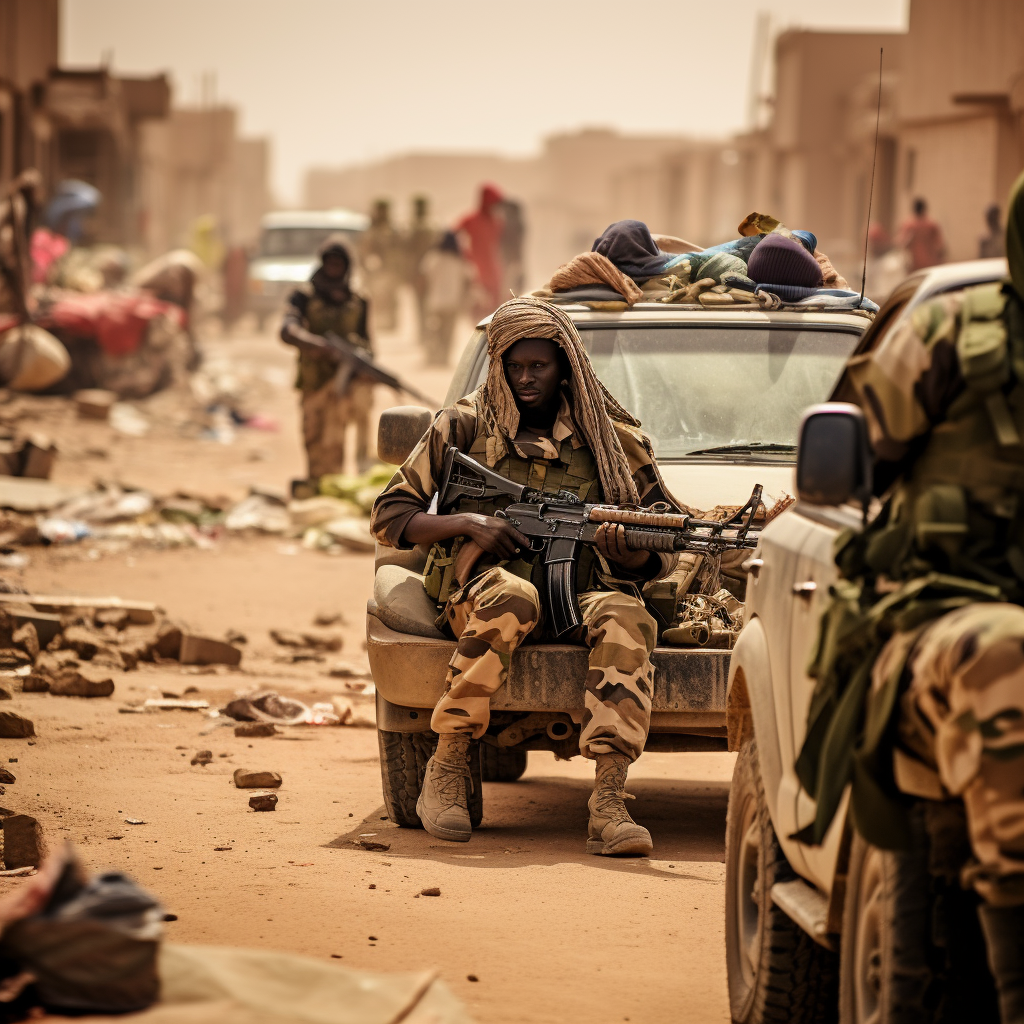New alliances, old challenges: Russian Influence and Terrorist Threats in West Africa and the Sahel
On the fringes of media attention, political upheavals have taken place in West Africa and the Sahel region in recent years. Many countries in the region are therefore facing an uncertain political year in 2024. The following is a clarifying look at the situation.
The list of countries in the region where military coups have taken place since 2020 is growing. After Mali, Guinea, Chad, Sudan and Burkina Faso, the rulers in Niger and Gabon were also ousted from power in 2023. And there is no end in sight to this new “lust for the coup”. At the end of the year there were open, if limited, struggles for political control in two other states in the region. In December, the conflict between the parliament and the government of Guinea-Bissau resulted in the former’s dissolution by President Umaro Sissoco Embalo, which speaks of an attempted coup. In Sierra Leone, tensions between the government and opposition erupted on November 26 following the disputed presidential elections in June this year, when clashes broke out between government soldiers and renegade army units in the capital, Freetown. Here too, the president described the attacks as a failed coup d’état .
While the exact impact of the coup attempts in Guinea-Bissau and Sierra Leone on cooperation with the EU and the issue of travel security cannot yet be foreseen, the change of power in Niger in July 2023 is already showing its first effects. After President Mohamed Bazoum was deposed by the Presidential Guard and its leader Abdourahamane Tiani, Niamey canceled the anti-smuggling law agreed with the EU in 2015, which served to block migrants from crossing the Mediterranean into the EU. The number of people who have reached Europe this way since 2015 has increased from 100,000 10,000 per year decreased. After the pact is dissolved, experts expect an increase in migration movements to Europe. Given the different attitudes of European countries towards migration, this development could contribute to a destabilization of the EU internally. The winner would be Russia, which is trying to increase its influence in Niger and the region. It can be certain that the former colonial power France will be rejected by large parts of the population.
Further signs of Niger’s foreign and security policy reorientation are the termination of cooperation with the EU on the civilian development mission EUCAP Sahel Niger and the military cooperation mission EUMPM. Instead, the junta is intensifying its contacts with Russia to seek advice on defense issues. As in Mali and Burkina Faso, Russia has also offered the new rulers in Niamey support through mercenaries from the Wagner Group. Niger has so far been a strategically important partner of Western states in the fight against jihadist groups in the Sahel, the situation is worsening Security situation in the border triangle of Niger-Mali-Burkina Faso is increasingly deteriorating.
The influence of Western states is also dwindling in other countries in the region, not least at the military level. After the government of Mali called on the United Nations to end the MINUSMA peacekeeping mission in the country in June 2023, the last armed forces will have left the country by the end of the year. Terrorist groups operating in the Sahel zone will be able to take advantage of the resulting security vacuum and attempt to expand their control over the region. A similar situation is evident in Chad, where Mahamat Idriss Déby took power from his father in April 2021. The country has so far been an important security partner for France in the region, which operates its last military base in the Sahel in N’Djamena, having already had to withdraw its troops from Niger, Burkina Faso and Mali. If France also had to withdraw its soldiers from Chad, Western military experts believe the entire region would be open to jihadists and smugglers. Representatives of the opposition and civil society are already calling for everyone to leave French troops from the country.
The year 2024 will most likely be characterised by growing instability in West Africa and the Sahel region. Although the coups of recent years have brought about new political constellations, they have not yet been able to significantly improve the living conditions of local people. As Russia’s political and military influence in the region increases, Europe’s opportunities to help shape developments, for example in the areas of security and migration, are dwindling. While agreements with the EU are being cancelled and the last UN soldiers are leaving the region, Russia is offering itself as a partner. At the same time, jihadist terrorist groups are conquering ever larger areas and destabilising the entire Sahel. If the states in the region do not succeed in stopping the jihadist advance, a further increase in refugee movements can be expected in 2024.
The aforementioned security deficits may also affect tourism in neighbouring countries such as Senegal, one of the main destination countries in the region for travellers from Europe. Combined with a stronger economic focus on non-European players, it is likely that the reorientation of West African countries will also have a negative impact on business travel. Further effects on travel activities cannot yet be realistically estimated. For example, it is not yet known whether the visa regulations for EU citizens will change in 2024. It also remains to be seen whether other countries in the region will follow in the footsteps of the coups of recent years.

